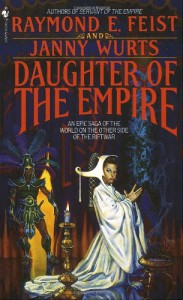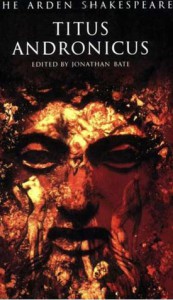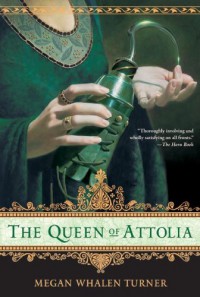
It's been a while since I've read a story with such complex political intrigue, and I enjoyed every word of it!
Plot SummarySet in a Japanese-style setting and culture, Mara of the Acoma is but a few minutes away from being initiated into the service of the goddess Lashima. She is, however, rudely jerked from her chosen path when news of her father's and brother's death reaches her household. In Mara's world, power is determined by the
Game of the Council, the neverending power struggle masked by a facade of courtesy--kind of like, let me respectfully bow and serve you chilled fruit while I run you through with this sword.
 No need to be rude while pillaging.
No need to be rude while pillaging.Mara must use all her wiles and courage to defeat the powerful Minwanabi house, whose members ordered the death of her family, and to rebuild her house to become one of the most powerful in the empire.
ReactionsThis book has everything to satisfy any reader looking for political plotting thicker than molasses and intense behind-the-curtains wheeling and dealing. Plus, add in a few assassinations and underhanded trickery, and you've got a nice manual for your inner budding Machiavelli.
Though this book is an extension of Raymond E. Feist's Riftwar Series, I never felt lost or felt like I lacked vital information about the world. Kelewan is a refreshing change of scenery from 90% of fantasy's Western-style worlds. And despite my meme above, I imagined settings like this:

.
Governed by strict honor and warrior codes, Kelewans are fierce in their observance of duty and conduct to the point of choosing death over dishonor.
Much of this book revolves around Mara's development from an experienced young girl to a powerful political figure and leader. And believe you me, her path is not one filled with flowers and rainbows. She endures violence, abuse, frustrations, and then some, but still has the wits to emerge victorious. Mara particularly shines in her flexibility with bending Kelewan's codes of conduct to gain advantage over her enemies.
The characters were also superbly developed. Mara's complexity and vitality goes without saying. Her inner strength and intelligence reminded me a lot of Phedre from Kushiel's Dart and Catelyn from Game of Thrones. But I also need to give a shout out to the violent, cunning, bullying
Bunto. He's ignorant and seemingly beyond redemption, but he became one of the most human "villains" I've ever read about just because his ignorance is so common yet real.
What I found offsetting was that the numerous codes seemed spontaneously introduced to manipulate the plot. The concept of conducting oneself courtiously and honorably is pretty much imprinted on the mind by page 50, but even at page 400, we still get schooled on
how to pleasantly receive enemy house guests or
how deep to bow to offer just the right amount of offense. The constant reminder of these rules became invasive to an otherwise naturally developing story.
Overall,
4.5 STARS and HIGHLY RECOMMENDED. If you're a fan of political intrigue and strong female characters, this is your book.
Now, onto Servant of the Empire!


















 .
.







